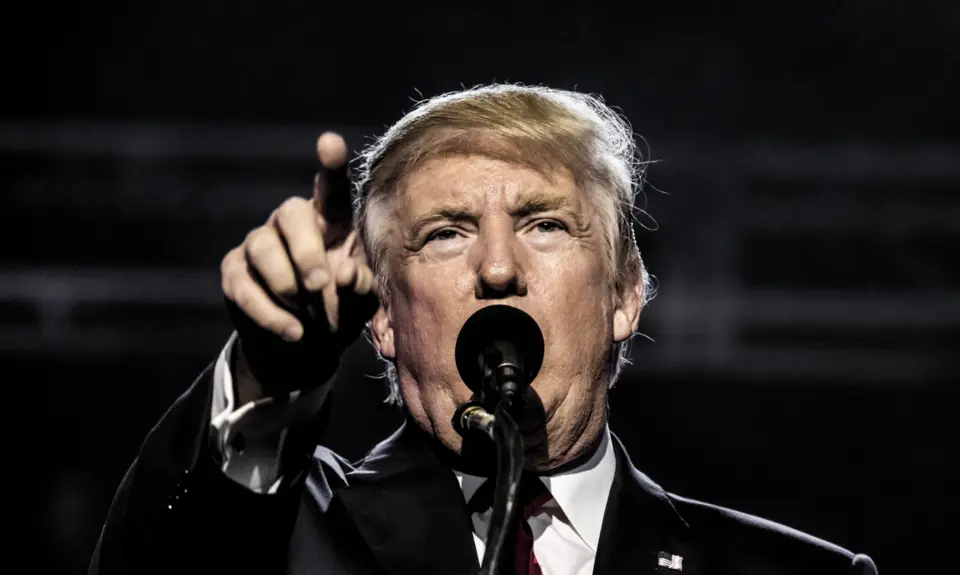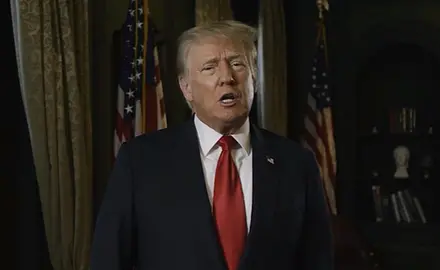Welcome to our weekly “Trumptastrophe” series that serves to remind us of the destructive policies, decisions, and actions we encountered during the Trump presidency and the threats that he and others in the MAGA movement still pose – and to keep those moments clear in our memory as we fight to defeat Republican extremists during the upcoming elections.
This week’s Trumptastrophe focuses on former President Trump’s attempts to cling to power following the 2020 election while he and his allies spread lies about the outcome through their repeated and disproven claims that it was “stolen.” And as polls tighten between former President Trump and Kamala Harris, his campaign continues laying the groundwork to repeat the same claims if he loses to Harris this November.
On Sept. 23, 2020, President Donald Trump refused to commit to a peaceful transfer of power if he lost the upcoming election, a preview of his intensive efforts to hold onto power illegally after he did lose.
Polls at the time showed that Trump was trailing Joe Biden, and Trump was trying to create doubts about the election’s legitimacy by making bogus claims about mail-in ballots and voter fraud.
When Trump was asked at a White House news conference if he would commit to a peaceful transfer of power, he responded, “Well, we’ll have to see what happens.”
“I’ve been complaining very strongly about the ballots,” Trump said. “And the ballots are a disaster.”.
Trump had already been setting himself up to deny defeat, saying at the Republican National Convention that summer, “The only way they can take this election away from us is if this is a rigged election.”
Trump’s refusals to pledge support for a peaceful transfer of power sparked widespread criticism, leading White House press secretary Kayleigh McEnany to tell reporters the following day, “The president will accept the results of a free and fair election.” That, of course, turned out not to be true.
In a poll conducted a few days after Trump’s comments, fewer than half of likely voters thought a peaceful transition of power was likely if Biden beat Trump. Trump made it clear that those concerns were well founded a week after his press conference, when he was asked at a presidential debate if he would pledge not to declare victory until the election was “independently certified.” Trump said, “If I see tens of thousands of ballots being manipulated, I can’t go along with it.”
By then, journalists were reporting on the Trump campaign’s plans to aggressively challenge the results in battleground states if he lost. In The Atlantic, Barton Gellman warned of a worst-case scenario in which Trump “uses his power to prevent a decisive outcome against him”:
If Trump sheds all restraint, and if his Republican allies play the parts he assigns them, he could obstruct the emergence of a legally unambiguous victory for Biden in the Electoral College and then in Congress. He could prevent the formation of consensus about whether there is any outcome at all. He could seize on that uncertainty to hold on to power.
We now know that is the path Trump chose and pursued relentlessly, at great cost to our political system.
Trump, his legal team, and his supporters promoted unbelievable conspiracy theories and brought dozens of frivolous lawsuits, bullied and threatened local election officials and state officeholders, created fraudulent slates of pro-Trump electors from states he lost, aggressively pressured Vice President Mike Pence to abuse his power and disrupt the constitutional process of Congress affirming states’ certified Electoral College votes, tried to get the Justice Department to take his side, and called a mob of supporters enraged by his false claims to descend on Washington on Jan. 6.
The Atlantic’s Gellman was right about something else when he wrote before the 2020 election:
Donald Trump may win or lose, but he will never concede. Not under any circumstance. Not during the Interregnum and not afterward. If compelled in the end to vacate his office, Trump will insist from exile, as long as he draws breath, that the contest was rigged.
Of course, Trump continues to spread his inflammatory Big Lie, insisting falsely that he did not lose the 2020 election. He and his allies have been repeating dangerous claims that the only way he can lose this year is if his opponents cheat.
That is setting the stage for more rage from his supporters, and for a repeat of the kind of violence we saw in the attack on the Capitol by people who believed Trump’s groundless claims that illegal voters and corrupt election officials had stolen the election from Trump and his followers.
Trump’s coup failed, but only because courts refused to overturn the election based on his false claims, and because people in powerful positions—including Vice President Mike Pence and lawyers at the White House and Justice Department—were more loyal to the Constitution than to Trump and his political ambitions.
Trump and his political advisers have made it clear that they believe hiring such principled people was a mistake they will not repeat if he returns to power. His allies at Project 2025 are prepared to assert that the president has dictatorial powers, and they have been busily vetting thousands of ideological warriors to make sure he can replace purged government employees with people who won’t challenge the ways he decides to use and abuse that power.
American voters are facing a choice between two starkly different candidates and two starkly different futures. Trump and his allies have already proven that they have contempt for democracy. They are making plans to give Trump the kind of power and control he envies in dictatorial leaders around the world. Freedom is on the ballot.
These are just some of the reasons we need YOU in this fight. So, find your favorite way to unwind after reading through this week’s recap, and then make a plan for how you will fight back this week, this month, this election cycle.



